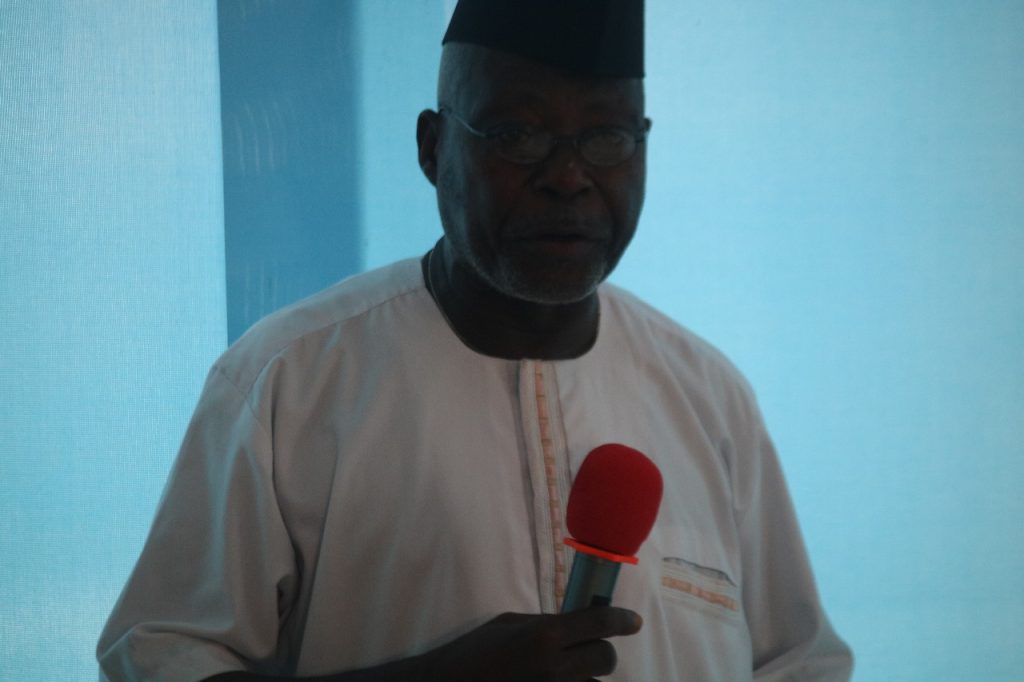The Governance Commission (GC) of Liberia, in partnership with the Ducor Institute for Social Justice and Economic Research, orchestrated a pivotal one-day policy dialogue centered on the profound implications of the Liberian civil conflict, a tragic period that resulted in the loss of approximately 250,000 lives. The dialogue, held on July 10, 2025, brought together a diverse assembly of stakeholders, including development partners, government officials from all three branches, civil society organizations, youth representatives, and student groups, all united in their commitment to national healing, reconciliation, and the pursuit of justice.
Professor Alaric Tokpa, Acting Chairperson of the GC, emphasized the dialogue’s alignment with President Boakai’s national reconciliation agenda and underscored the unwavering support for the establishment of a War and Economic Crimes Court (WECC) as an integral component of peacebuilding, stability, socio-economic development, and good governance. He stressed that the court is not merely a judicial undertaking, but a profound moral and historical obligation that reflects Liberia’s determination to confront its past and pave a path towards a future defined by justice, accountability, and unity. The atrocities committed during the conflict – the loss of innocent lives, the degradation of human dignity, the wanton destruction of property, the disregard for the rule of law, and the violation of international humanitarian law – demand acknowledgement and redress. The WECC, therefore, represents a critical mechanism for ending impunity, deterring future atrocities, and providing justice and reparations to victims. Tokpa also advocated for the establishment of a non-bailable anti-corruption court to address the pervasive issue of corruption, further solidifying the rule of law.
Dr. Aaron Weah, Executive Director of the Ducor Institute, presented a research-based analysis of the significance of the WECC. He argued that the court offers an opportunity to scrutinize Liberia’s recent history and create an impartial record that will serve as the foundation for a more accurate and comprehensive historical narrative. He cautioned against the dangers of unchecked and casually transmitted “violent memories,” often repackaged through mediums like memoir films, without sufficient consideration for their potential to reignite societal divisions and perpetuate harmful narratives. Dr. Weah pointed specifically to the Movement for Democracy and Reconstruction (MDR), formerly led by the late Senator Prince Y. Johnson, and its perceived association with particular ethnic groups during the civil war, and the All-Liberian Coalition Party, similarly perceived as representing a specific ethnic response to political and civil rights issues. He highlighted the “politics of silence” that has allowed the Liberian state to remain indifferent to these potentially divisive social and political maneuvers, further emphasizing the urgent need for open dialogue and reconciliation.
The dialogue further benefited from a panel discussion featuring prominent legal experts including former Chief Justice Frances Morris Allison, veteran human rights lawyer Cllr. Tiawon Gongloe, Cllr. Boakai Kanneh, and Cllr. Jallah Barbu. These legal minds provided valuable insights into the legal framework for the WECC, the crucial role of archival research and evidence collection, and the importance of ensuring the active participation of victims and ordinary citizens in the pursuit of criminal accountability. Their expertise enriched the conversation and provided a practical legal framework for the complex undertaking of establishing the court.
The overarching theme of the dialogue was the vital importance of confronting the past to build a more just and peaceful future. The WECC serves as a symbol of Liberia’s commitment to this principle, offering a path towards accountability, healing, and reconciliation. The involvement of diverse stakeholders, including international development partners like ECOWAS, the UN, the AU, and the EU, further underscores the global recognition of the importance of this initiative. Their continued support, acknowledged by Acting Chairperson Tokpa, is crucial for the success of the WECC and Liberia’s journey toward sustainable peace and justice.
The establishment of the WECC and a non-bailable anti-corruption court represents a crucial step towards breaking the cycle of impunity and fostering a culture of accountability in Liberia. By acknowledging and addressing past injustices, Liberia aims to create a more just and equitable society, where the rule of law prevails, and the rights of all citizens are protected. The policy dialogue served as a crucial platform for open discussion, information sharing, and consensus building, laying the groundwork for the successful implementation of these critical judicial mechanisms. The dialogue also highlighted the importance of addressing not only the direct consequences of the civil war but also the underlying social and political dynamics that contributed to the conflict. This comprehensive approach, encompassing both judicial processes and societal dialogue, is essential for achieving lasting peace and reconciliation in Liberia.














